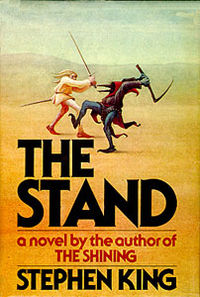About ten years ago I picked up a fantasy novel at the library. It was really good, but now I have completely forgotten both title and author.
What I remember:
- I read it in Danish, and I guess it was translated from English, but not certain.
- It wasn't new when I read it and it was even a translation, so I'm thinking it is from the 80s/90s.
- The ending was very strong. The main character and his loved ones are holed up in a fortress-like city in the desert. At the end, some of them want to leave but one of them (a child?) is believed to have a serious contagious disease and is therefore being held back. The main character then drinks from the same cup as the sick person (or maybe kisses him) to prove he isn't carrying the plague. The boy is released, but the main character contracts the disease and dies, sacrificing himself.
- He travels to this town and is only there in the latter part, but I don't remember anything from the first part.
- I also think the plague was a major plot device, at least in the final part.
- It was in a fantasy world, but there weren't any spells or dragons. I think maybe the main character was a healer of some kind, but more in a spiritual kind of way.
It was a really great novel and it'd be amazing to read it again. I know this is kind of a long shot. I know it's not much, but maybe someone else had a strong response to it too.

